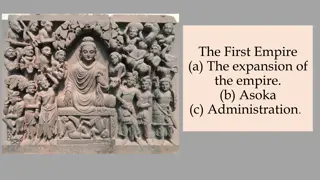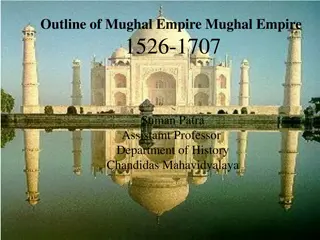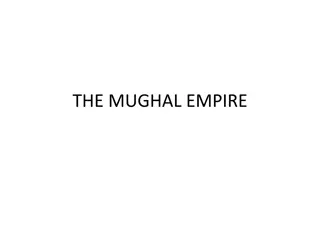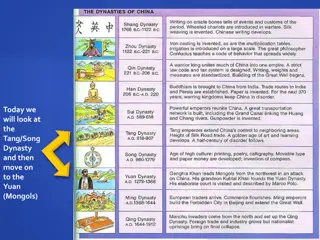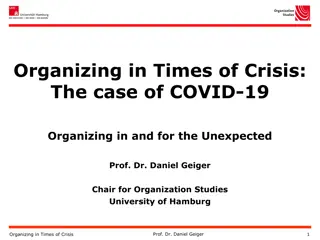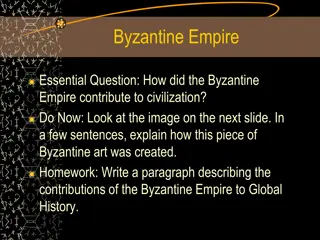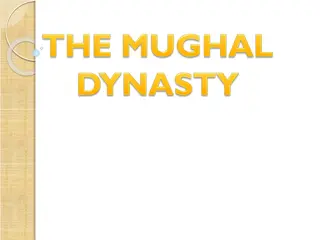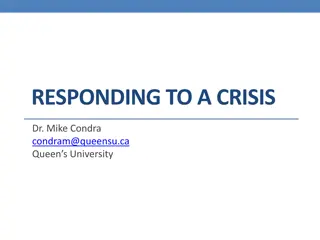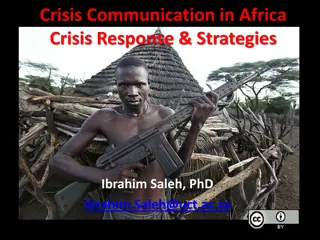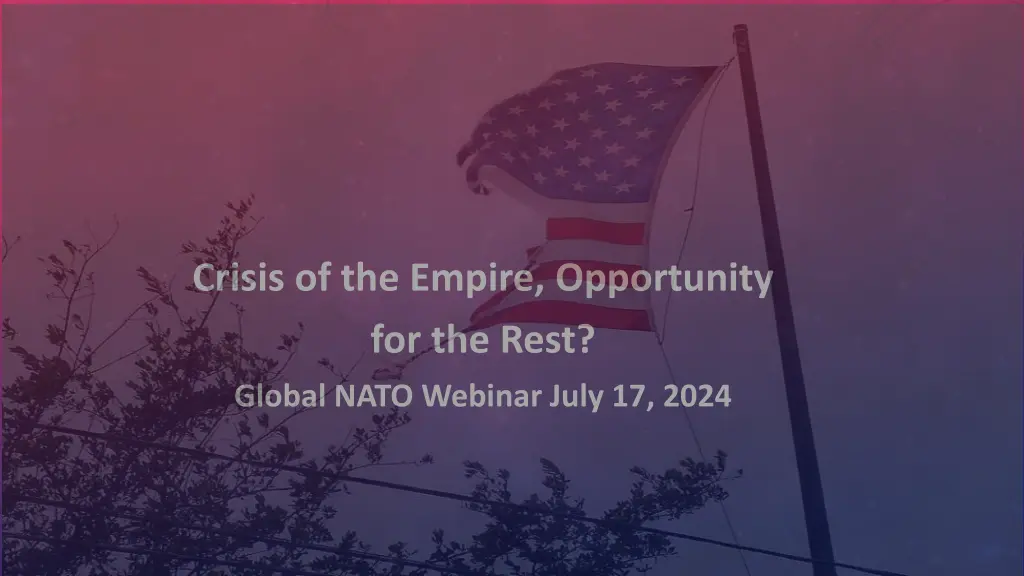
Crisis of the Empire: Unraveling Global Hegemony
Explore the unraveling global hegemony of the United States, examining causes such as military overextension, neoliberal globalization, and the crisis of the liberal political and ideological order. Delve into the impact of events like 9/11 and the overextension of the US empire, leading to a period of polycrisis and the birth of a new world amidst the old one dying. Join the discussion on the changing landscape of the contemporary world order and the challenges it brings.
Download Presentation

Please find below an Image/Link to download the presentation.
The content on the website is provided AS IS for your information and personal use only. It may not be sold, licensed, or shared on other websites without obtaining consent from the author. If you encounter any issues during the download, it is possible that the publisher has removed the file from their server.
You are allowed to download the files provided on this website for personal or commercial use, subject to the condition that they are used lawfully. All files are the property of their respective owners.
The content on the website is provided AS IS for your information and personal use only. It may not be sold, licensed, or shared on other websites without obtaining consent from the author.
E N D
Presentation Transcript
Crisis of the Empire, Opportunity for the Rest? Global NATO Webinar July 17, 2024
WALDEN BELLO *A FORMER MEMBER OF THE PHILIPPINE HOUSE OF REPRESENTATIVES, WALDEN BELLO IS CURRENTLY CO-CHAIR OF THE BANGKOK-BASED RESEARCH AND ADVOCACY INSTITUTE FOCUS ON THE GLOBAL SOUTH AND HONORARY RESEARCH FELLOW AT THE SOCIOLOGY DEPARTMENT AT THE STATE UNIVERSITY OF NEW YORK AT BINGHAMTON.
Antonio Gramsci There is that enigmatic line Gramsci used to There is that enigmatic line Gramsci used to describe his era that is also appropriate for describe his era that is also appropriate for ours: ours: The old world is dying, and the new world struggles to be born: now is the time of monsters.
Whether we call it Whether we call it polycrisis the age of catastrophe, like the distinguished Marxist Alex Callinicos, there is no the age of catastrophe, like the distinguished Marxist Alex Callinicos, there is no doubt that we are living in a period where the very foundations of the contemporary doubt that we are living in a period where the very foundations of the contemporary world order are cracking. There is that enigmatic line Gramsci used to describe his world order are cracking. There is that enigmatic line Gramsci used to describe his era that is also appropriate for ours: era that is also appropriate for ours: The old world is dying, and the new world struggles to be born: now is the time of monsters. polycrisis, like Columbia University Professor Adam , like Columbia University Professor Adam Tooze Tooze, or , or This short presentation will focus on a key dimension of the polycrisis: the unravelling of the global hegemony of the United States. The downspin of the US empire has had a number of causes, but key among them are military overextension, neoliberal globalization, and the the crisis of the liberal political and ideological order. Let us discuss each in turn.
OVEREXTENSION OVEREXTENSION The aim of bin Laden s attack on the Twin Towers on Sept 11, 2001,to provoke the overextension of the empire by forcing it to fight on several fronts in the Muslim world that would be inspired to revolt by his dramatic action. But instead of igniting revolt, Osama s act ignited revulsion and disapproval among most Muslims. Sept 11 would have been a big failure had not George W. Bush seen it as an opportunity to use American power to reshape the world to reflect the Washington s unipolar status. He took Osama s bait and launched the US into two unwinnable wars in Afghanistan and Iraq. The results have been devastating for America s military power.
Overextension refers to the gap between the ambitions of a hegemon and its capacity to achieve those ambitions. It is almost synonymous with the concept of overreach as used by the historian Paul Kennedy, the slight difference being that overextension as I use it is principally a military phenomenon. The struggling empire the US is today is a far cry from the unipolar power it was a quarter of a century ago, in 2000. If we ask ourselves what led to this situation, we inevitably come across one individual: Osama bin Laden.
Thirty years ago, US corporate capital along with the Clinton administration, envisioned globalization, achieved through trade, investment, and financial liberalization, as the spearhead towards its greater domination of the global economy. Wall Street and Washington were wrong. It was China that was the biggest beneficiary of globalization and the US one of its main victims.
TRADING PLACES TRADING PLACES China has traded places with the US in the global economy. China is now the center of global capital accumulation or, in the popular image, the locomotive of the world economy. According to IMF calculations, China accounted for 28% of all growth worldwide in from 2013 to 2018, which is more than twice the share of the United States. What must be underlined is that while the US followed neoliberal policies of giving full play to market forces, China selectively liberalized, with the powerful Chinese state guiding the process, protecting strategic sectors from foreign control, and aggressively demanding advanced technology from western corporations in exchange for cheap labor.
T TOWARDS CIVIL WAR? OWARDS CIVIL WAR? The historical left is in full meltdown. They always focus on noise, never on signal. They don t understand that the MAGA movement, as it gets momentum and builds, is moving much farther to the right than President Trump We re not reasonable. We re unreasonable because we re fighting for a republic. And we re never going to be reasonable until we get what we achieve. We re not looking to compromise. We re looking to win.
B BIDEN STRUGGLES TO KEEP NATO TOGETHER IDEN STRUGGLES TO KEEP NATO TOGETHER This order is what Biden extolled during his press conference on June 7, 2024. It is an anachronistic order, and Biden s defense of NATO showed him to he an anachronism. Several times, he referred to America as the "indispensable nation," parroting Madeline Albright's arrogant line, and presented himself as the prime defender of the country's cold war alliances, NATO in Europe, the US- Japan-Korea military complex in Asia, and Israel. This role as global sheriff is precisely what a very significant section of the electorate is tired of playing owing to the high cost it has entailed, not only in terms of subsidizing those allies but even more, in terms of what many perceive as the way preserving the empire has come at the expense of the economy and the living standards of the people.
Trump, on the other hand, understands that ordinary Americans have become weary of Kennedy's Cold War promise that Americans "shall pay any price, bear any burden, meet any hardship, support any friend, oppose any foe, in order to assure the survival and the success of liberty." He knows that this strong reluctance to continue bearing the burdens of empire extends from left to right and he has opportunistically played on it to advance his far-right agenda. That he distrusts and dislikes NATO is a point the Biden people have stressed.
C CRISIS OF THE LIBERAL INTERNATIONAL ORDER RISIS OF THE LIBERAL INTERNATIONAL ORDER This liberal order is now in trouble in two fronts: on the international front, it has lost legitimacy among the global South that sees the multeral system as designed mainly meant to keep it down; internally, the liberal democracy that is its guiding ideology is under assault from the far right.
WHAT IF THE FAR RIGHT COMES TO POWER? WHAT IF THE FAR RIGHT COMES TO POWER? If the far right comes to power in the US and in key states in Europe and in the medium term it may come to power in France and soon after that, in Germany--the international order they would favor would probably continue to assert western economic supremacy but adopt a much more unilateralist approach, more protectionist approach of securing it instead of using NATO and the IMF-World Bank-WTO complex. Certainly, the far right will abandon the hypocritical appeal to liberal democracy as a model for the rest of the world.
T THE SOUTH CHINA SEA COCKPIT HE SOUTH CHINA SEA COCKPIT The US has scores of bases surrounding China from Japan to the Philippines, including the massive floating base that is the Seventh Fleet. The South China Sea is now filled with rival warships performing naval exercises ; among the latest visitors are vessels from France and Germany, US allies that have been dragooned far from NATO s traditional area of coverage to contain China. US and Chinese warships have been known to play games of chicken heading at each other and then swerving at the last minute. A miscalculation of a few feet could result in a collision. Fears that the South China Sea will be the next site of armed conflict are not alarmist
H HEGEMONIC STALEMATE? EGEMONIC STALEMATE? While there are risks involved, a hegemonic stalemate or a hegemonic vacuum, opens up the path to a world where power could more decentralized, where there could be greater freedom of political and economic maneuver for smaller, traditionally less privileged actors from the global South, where a truly multilateral order could be constructed through cooperation rather than be imposed through either unilateral or liberal hegemony.
Yes, the crisis of US hegemony may lead to an even deeper crisis, but it may also lead to opportunity for us. To use Gramsci s image that I began this presentation with, we may be entering an age of monsters, but like Ulysses, we cannot avoid going through the dangerous passage between Scylla and Charybdis if we are to get to the promised safe harbor.

